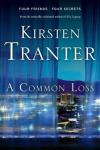Marion Von Adlerstein is the author of two other books on shopping and etiquette. The Freudian Slip is her first novel. It draws upon her own experience in a territory familiar to viewers of Mad Men – an advertising agency in the early sixties.
Set in Sydney, the novel revolves around three women. Desi is a television producer, Bea a copywriter and Stella, an ambitious ‘want to be’ from the wrong side of the tracks. Stella’s efforts to establish herself as part of the creative team at the agency generate most of the plot momentum.
While Stella has boundless energy and willpower, originality is not her strong point. Elevated from typist to copywriter, she soon learns that the package rules over the product – a message she apples to updating her look. Her outdated fifties beehive hairdo and princess-line dress make way for the a-la-mode look of the sixties. ‘Which persona to adopt? … an impersonation of Jeanne Moreau would be unsuitable. Jean Shrimpton? She no longer found that role model exciting. Then she remembered Audrey Hepburn…’
As with Mad Men, the role of women in the agency made me a little uncomfortable, but no doubt it was true to the time. Women are regularly described in terms of their vital statistics. Men are predatory and blatantly sexist. The agency’s male executives enjoy long boozy lunches while the women hold the fort. The social mores of the time regarding sex make interesting reading. A divorced woman is ‘spoilt goods’ and an affair with a married man is headline grabbing social death.
I enjoyed the period details of clothing and food which Von Adlerstein obviously remembers well. ‘Onion dip, devilled eggs and stuffed tomatoes were ready before the first guests were due. Swedish meatballs and cocktail frankfurts were standing by to be re-heated. A dozen bottles of sparkling Barossa Pearl sat among ice in a large tub…’ The brainstorming around the ad campaigns was also fun. The Freudian Slip of the title is a daring label for a new line of underwear.
The novel had a fast pace and enough intrigue to keep me turning the pages. The characters’ career and relationship dilemmas provide plenty of action. Von Adlerstein’s copywriting background shows up in the easy to read prose. This is a lively and entertaining book for those in the mood for a light-hearted romp.
This is my third review for the Australian Women Writers Challenge. 



